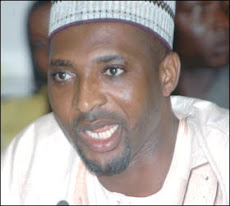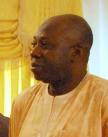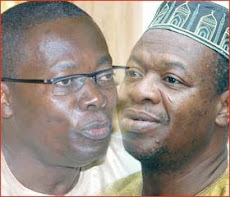
In contrast to some of its neighbouring West African states, Ghana is a largely stable country, which is presently much less exposed to major security challenges posed by the fall out of civil war or imminent threat of terrorism. The country has witnessed two peaceful transitions of power from one civilian government to another since 2000, at a time when most of its West African neighbours have been unable to hold violence-free elections and remain in highly fragile political states. During his inaugural presidential visit to Africa last July, American President, Barack Obama, chose Ghana as one of his key ports-of-call and hailed the country for the progress it has made in consolidating democracy and promoting good governance. With an evidently successful transition from military to civilian rule, its relatively free press and active civil society, the former-British colony is often viewed as one of West Africa’s most stable and progressive national jurisdictions.
Despite its stability and enviable external image, Ghana is yet to extricate itself from one of Africa’s greatest sorrows: top down corruption and cronyism of the highest order. Corruption is an Africa-wide phenomenon, upon which we have elaborated in a number of our previous briefings on African countries. Most major African corruption scandals tend to involve senior government officials and Western multinationals – an unsavoury alliance which itself usually involves bribes for contracts of one type or another. While neighbouring Nigeria has in recent months been caught up in the gargantuan Nigeria LNG corruption scandal (where an affiliate of the US oil field services giant, Halliburton, admitted in the US courts to having bribed Nigerian officials in excess of hundreds of millions of dollars in order to win multibillion dollar energy contracts), Ghana is this week gripped by the fallout of its own version of Nigeria LNG.
At the end of last month (September 25), in a similar development to the US courts ordering Halliburton to pay multimillion dollar fines for its guilt admission in the Nigeria LNG scandal, a judge at London’s Southwark Crown Court imposed fines of up to £5 million on the British construction firm, Mabey and Johnson, after the company plead guilty to charges of overseas corruption in Ghana and several other countries.
Like Kellogg Brown Root (Halliburton’s affiliate in the Nigeria LNG corruption scandal), Mabey and Johnson (a Reading, UK, based company) has enjoyed a long track record of winning contracts in Africa, Asia, the Middle East and the Caribbean. The company operated in Ghana between 1994 and 2005, winning a number of lucrative bridge building contracts from the government during the mid-1990s. Following last month’s verdict against the company, however, it was revealed that such contracts were won as a result of the bribes paid to Ghanaian government officials in the range of £500,000 (part of total illicit payments of £1 million to foreign politicians in order to secure contracts valued up to £60 million in a host of countries, including Iraq during the regime of Saddam Hussein and the imposition of UN sanctions).
The M&J case, as it has now become dubbed, has caused outrage in Ghana, given that the London court ruling established a who’s who of past and present senior Ghanaian government officials being linked to the bribes doled out by M&J. Some of those cited in last month’s court ruling include Dr Obed Asamoah, a former Foreign Minister and Minister of Justice and Attorney General; Kwame Peprah, a former Minister of Finance; Dr. George Sipa Yankey, Minister of Health; and Alhaji Amadu Seidu, a former Minister of State and former Deputy Minister of Road and Highways. Many see the M&J case as testing the government of Ghana’s president, John Atta Mills, in the way he handles the allegations, as pressure groups within the country are presently calling on a series of resignations by cabinet officials implicated in the scandal. Earlier this week President Mills dispatched his Attorney General, Betty-Mould Iddrisu, to London as part of the government’s efforts to launch a thorough investigation into the M&J case. Many of the officials linked to the case have denied the allegations, however, despite the incriminating evidence established in the London court.
Pressure groups have also urged that Ghana’s former president, Jerry John Rawlings, the great patron of Ghanaian politics, address questions pertaining to his role in the M&J case, given that payments were solicited during his presidency. This has sparked controversy, since Rawlings was Ghana’s public crusader against corruption during the height of his power, chastising many corrupt former-officials in front of crowds of delirious Ghanaians in the 1980s and 90s.
Adding to the drama is the fact that Rawlings’ wife, Nana Konadu Agyeman Rawlings, has also been linked to bribe taking in the M&J case. Such allegations have caused public clashes in the media between supporters of Rawlings and President Mills (who was vice-president under the Rawlings presidency) on the one hand, and pressure groups and the opposition on the other, and has increased tension in a country where social inequality has increased significantly since the transition to democracy and where GDP per capita income remains at barely $US 550 per annum.
It should be added that although Ghana does not appear to face imminent hard security or terrorism related threats, softer security threats including crimes such as drug trafficking, piracy and illegal fishing remain major concerns for the country’s government. Governments in West Africa typically lose millions of dollars in revenue to various forms of trafficking and poaching activities, whilst new oil discoveries in the Gulf of Guinea are bringing with them added threats of maritime terrorism and piracy. A shortfall of maritime security in this area leaves Ghana particularly exposed, and prompted the visit of a US naval vessel to Ghana earlier this year to seek security collaboration with the government in order to combat maritime crime in the country’s territorial waters.
Stuart Poole-Robb













No comments:
Post a Comment